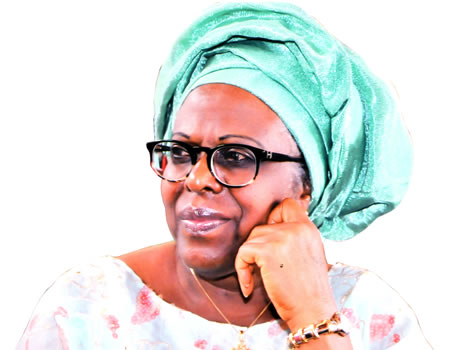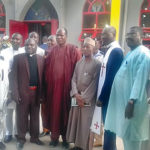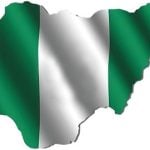Continued from Nigeria: Redefining nationhood
In addition, there are lingering concerns within some ethnic nationalities about the perceived inequity that flows, in their view, from the current governance structure of the country.
In the area of leadership, the truth is that today, we appear to be as far away from the ideals and vision of Nigeria’s founding fathers as we have ever been. Embarrassing human development indicators, especially when compared to countries with which we were at par, or even in advance of at independence, remain inescapable pointers to the downward spiral in the fortunes and the quality of life of most Nigerians.
Here, the comparison with South Korea is deliberate.In 1961 Korea was one of the poorest nations in Asia, with a per capita income rather lower than that of Ethiopia, and much lower than those of Nigeria and Ghana, but by the late 1990s their per capita income was in excess of $10,000 (Nigeria $300.6) and Korea was accepted as Asia’s second member of the Organisation for Economic Cooperation and Development(OECD).
Still on leadership, there appears to be a consensus, of sorts, among the political elite. But that consensus appears to be limited to the privileged.
Furthermore, the quality of political leadership in Nigeria appears to be in decline even as the bar of expectation and, indeed, the sense of civic responsibility on the part of the electorate, has been reduced to an unacceptable low. Whether this situation was foisted on us by deliberate design or is simply a consequence of one on the other is immaterial.
The consequences are the same, and they include the following unfortunate developments in the polity:
- Unprecedented ferocity of electoral contests;
- Outrageous cost of running for office, with its consequent, seemingly irresistible lure towards corruption. Political brokers/middlemen smile all the way to the bank while blackmailing politicians and, at the same time, exploiting the masses;
- Increasingly transactional nature of elections, the consequence of which is the total disempowerment of the electorate;
- Lowering of standards in leadership recruitment as capable people opt out of the ‘game’;
- A dangerous disconnect between the political elite and the citizenry, while ordinary folk are reduced to the level of Stalin’s allegorical, unfortunate chicken.The elite, meanwhile, continue to play the opportunistic self-interest card, at the expense of everyone else;
- The greatest casualty in all of this, of course, is not only ourdemocracy or even the threat to our quest for nationhood. The greatest casualty is our development and, in turn, the future of Nigeria and coming generations of Nigerians.
- Political parties, which are supposed to play a pivotal role in fostering national development and good governance through various strategies, including grassroots mobilisation around important issues, as well as leadership grooming, appear to be more interested only in the 4-year cycles of elections and the power play that goes on in-between.
Towards the Fourth Wave of Redefinition of Nationhood: Recommendations
The Imperative for Restructuring
If years of experience under a unitary system have taught us anything, it is that it is unrealistic, inefficient and inappropriate to attempt to administer a country as diverse as Nigeria from a central government.
Undoubtedly, therefore, a fourth wave of redefinition of the Nigerian nationhood is long overdue andthe need for it has now assumed an exceptional urgency. We may have started out as a ‘geographical expression’, but we possess the capacity to transform into a nation if we take the right steps. The first step, in my humble opinion, is to adopt a system that would guarantee equity and justice for all, regardless of ethnicity or social class, within our borders.
As has been established earlier in this presentation, the current unitary framework has never worked, and it is not working for Nigeria. A comparative review of the previous three waves of redefinition of nationhood show, very clearly, that only the second wave had a positive impact on Nigeria, her development and her peoples. The distinguishing feature of that second wave was a federal constitution, as opposed to the unitary structure of the first and third.
I, therefore, submit, with all the emphasis at my command, that the only way forward, towards true Nigerian nationhood, is torestructure the polity by putting in place a suitable constitutional framework,in other words, a return to a Federal Constitution.
I would also like to submit that a return to the parliamentary system of government is should be given serious consideration as we restructure the polity.
Permit me to quote Professor G. G. Darah on this matter:
‘…Restructuring is necessary to reduce the imperial powers of the federal centre and devolve political, economic and judicial powers to the federating units. The unitary system demands an emperor or conqueror to preside over the country…… In 50 years, the imperial system has destroyed economic autonomy of the States. Politics and elections have become more important than economic and social development. The unitary system must be dismantled to return power and autonomy to the federating units to manage their affairs and fostermerit and quality leadership. Restructuring is a pacific/peaceful way to return Nigeria to federal justice and equity…’
Consensus-building
One of the keys to nationhood and, indeed, any nation’s success is the ability to build a consensus around goals within a shared destiny. Sadly, that is not quite our reality here in Nigeria yet. Fortunately, we have not given up on the benefits of dialogue. Conversations are on-going and significant strides are already being made towards achieving the desired consensus, even on the matter of restructuring.
Some of the other fundamental issues on which a national consensus would be desirable include, but are not limited to, human capital development as an absolute priority, good governance and the need to seriously address the youth bulge.
Our aspiration for rapid national development naturally entails that we consider human capital development as an absolute priority, especially in the face of the existential threat of the consequences of not keeping pace with a fast-changing, knowledge-driven world. If we factor in the fact that those changes will lead to a very significant reduction in global demand for fossil fuel and, therefore, our nation’s revenue, we would understand just how real the danger is.
In 1961, Korea embarked on one of the most dramatic economic and social transformations ever achieved in human history. For the entire period between 1961 and 1997, a staggering average growth rate of ~9 per cent was achieved.
Massive investment in the education of its citizens, that is, investment in human capital, is widely acknowledged to account for the remarkable transformation of South Korea from a third to a first world country in one generation.
I am trying not to sound alarmist but, consider with me the pace at which technological innovations are already ruling the world and the training that is already available to prepare children in the developed world, not only to cope, but also to improve their skills in innovativeness and problem-solving.
Place that side-by-side with the Nigerian situation in which 13 million children are out of school in 2018 (the highest in the world), and where even those that are fortunate enough to be in school receive low quality education, when the rest of the world is already far into the fourth industrial revolution, and you will catch a glimpse of the enormity of the problem.
So, I repeat, we need to forge a consensus on massive investment in human capital development (education and health) because therein lies our hope for economic and social advancement and, more importantly, political stability.
Good Governance
On the issue of good governance, let me first of all say that, despite the many imperfections in its current practice, democracy remains the most desirable option for Nigeria. However, serious efforts need to be made by all stakeholders to reform and strengthen its performance.
The concept of good governance centers on the responsibility of governments and governing bodies to meet the needs of the masses as opposed to select groups in society. Patriotism, on the other hand, flows from a citizenry that is confident that they, and every aspect of their lives, matter to their government. Both are highly desirable in a nation.
Good governance assures that corruption is minimised, the views of minorities are taken into account and the voices of the most vulnerable in society are heard in decision-making. A good government is also one that is responsive to the present and future needs of society.
In this regard, the quality of leadership is critical. Those who aspire to lead need to undergo a process of thorough self-preparation and critical self-examination first before presenting themselves to the citizenry as possible leaders. They need to ask themselves questions such as:
‘Am I a transformational or a transactional leader?’ In other words, ‘I am in politics for the benefit of everyone, particularly the weak and vulnerable, or am I in it to get what I can for myself, my friends and my family?’
‘Do I love my people in order to serve them better?’ is another important question that, according to the Indian Prime Minister, Narendra Modi, everyone who aspires to be in government should ask himself or herself.
And to the citizenry, Awo said in his autobiography, ‘…who are to judge the type of persons who should be appointed to rule a particular people? The answer is: the people themselves…It is the readiness and the yearnings and aspirations of the people that will determine the calibre and character of those who will rule them…’
A responsible citizenry should refuse to be compromised so that they would be better able to demand greater accountability and good governance from their leaders.
It is an established fact that political parties play a crucial role in well-functioning democracies, but where they are disconnected from voters and dominated by the elite, democracy tends to flounder. In Nigeria, parties need to accept that their relevance goes beyond electoral participation alone. They also have the responsibility to train and recruit leaders, as well as for rigorous mobilisation of the people around issues.
With regard to the youth, there is a theory that contends that societies with rapidly growing young populations often end up with rampant unemployment and large pools of disaffected youths who are more susceptible to recruitment into rebel or terrorist groups. Also,countries with weak political institutions are most vulnerable to youth-bulge-related violence and social unrest. This sums up the Nigerian situation on both counts.
Therefore, urgent steps must be taken to address youth unemployment which currently stands at ~36.5%.
After emerging from the profound sense of shame that surrounded the Japanese colonial occupation, national pride has been regained in Korea, and the feeling is that nothing is now impossible for the country to achieve. This success story has, of course, been told and re-told in Korean schools with great pride and as an inspiration to the next generation.
It is imperative that Nigerian history is re-instated in the educational curriculum in our schools so that children can develop a healthy sense of identity and national pride. Also, this way, they would be better prepared to make informed choices when they attain the voting age. Furthermore, success stories of Nigerians, wherever they may be found, should be part of Social Studies, for example, in order to showcase to pupils and students positive role models that they can aspire to emulate.
At the heart of our march to nationhood, lies the need for unity.“We are only as strong as we are united, as weak as we are divided.” (J.K. Rowling). But, as I quoted earlier, ‘only a federal constitution can foster unity with concord among the diverse national groups in the country, as well as promote economy and efficiency in administration…’
Conclusion
Clearly, in order to return to the path of nationhood in Nigeria, it is imperative to restructure the polity, build consensus on fundamental issues and prepare the citizenry, particularly the youth, for effective leadership and responsible citizenship.
A restructured Nigeria portends the attainment of peace, unity and sustainable development. It is the sure path to nationhood.
In closing, let me leave you with Awo’s immortal words:
‘The Nigerian Federation…will succeed and survive not by the wishful and thoroughly unscientific thinking of some Nigerians, but only to the extent to which we are able, through rationally thought-out constitutional arrangements, to contain the centrifugal forces at work and subordinate them permanently to the cohesive and centripetal influences of politico-economic union and togetherness.’
Nigeria’s ‘golden age’ featured a federal constitution, a parliamentary system of government, and a stellar cast of visionary and selfless leaders. That was the winning formula. Therefore, it makes eminent sense to adopt this same formula now, through restructuring.
That, indeed, would be the ultimate, and best, Redefinition of Nigeria’s Nationhood.
May God bless Nigeria.
I thank you all for your attention.
- Ambassador (Dr) O. Awolowo Dosumu, Lagos
January, 23, 2019
(Concluded)







